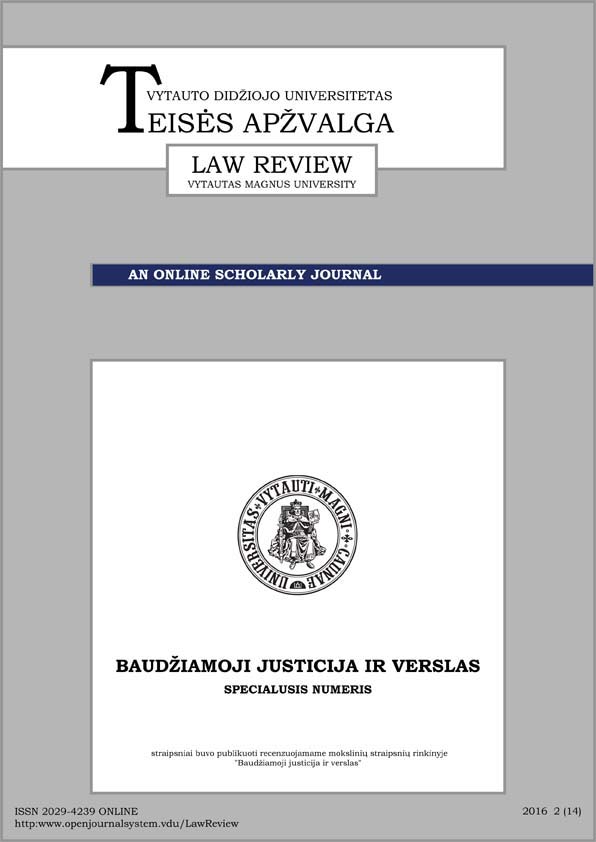Dirbtinis kriminalizavimas kaip teisinės praktikos patologija
The Artificial Criminalization as Pathology of Legal Practice
Author(s): Oleg FedosiukSubject(s): Law, Constitution, Jurisprudence, Criminal Law
Published by: Vytauto Didžiojo Universitetas
Keywords: Criminal law; Artificial criminalization; Criminal justice; Interpretation of criminal law; Ultima ratio principle
Summary/Abstract: Straipsnyje nagrinėjamas vienas iš teisės taikymo praktikoje pasitaikančių nukrypimų nuo konstitucinio baudžiamosios justicijos modelio, pasireiškiantis kaip baudžiamasis persekiojimas už veikas, kurios iš tikrųjų nėra pavojingos ir priklauso ne baudžiamosios teisės, bet kitų teisės šakų reguliavimo sričiai, taip pat kaip dirbtinis apkaltinimas sunkesne nei realiai padaryta nusikalstama veika. The article analyses the negative trend of legal practice, which the author calls the artificial criminalization. This notion identifies a situation where persons are being criminally prosecuted for deeds that lack hazard or belong to the regulation of other branches of law, as well as where persons are being artificially charged with a more serious crime than was actually committed. In most cases, such processes are not able to successfully pass all levels of court examination and eventually end in acquittal or properly changed conviction. But this fact does not diminish the relevance of the problem. It is completely normal when a person is acquitted because prosecution failed to prove her/his participation in a criminal act or to justify some kind of necessary element of a crime. However, the situation where a person has been acquitted by the court because the event was artificially tied to criminal law indicates a failure of the criminal justice mechanism. That is why the artificial criminalization is nothing more but an abuse of the criminal justice powers. The author distinguishes the following objective reasons of artificial criminalization: first, ambiguous and unclear statutory crime definitions that require interpretation; second, law enforcement activities directed to aggravate charges and to show good results in the fight against priority crimes; third, inadequate criminal justice „filter“ that fails to preclude the criminal proceedings for petty human conflicts. The author argues that the subjective reasons for artificial criminalization are typical to some investigators, prosecutors and judges’ formal attitude to the law, their habit of absolutizing the texts of statutes, as well as mechanical understanding of their role, and professional fatigue and deformation. One of the main conclusions of the article is that the modern legal doctrines always give the judge an opportunity to identify and overcome the artificial criminalization, to avoid unjustified convictions and make a reasonable decision in case. The author distinguishes the following working legal instruments: various methods of interpretation of criminal law; adherence to the general and special legal principles, in particular, the principles of legality (nullum crimen sine lege), proportionality, criminal responsibility as a last resort (ultima ratio); the requirement to determine the proper dangerousness of the offense and precise opposition to the legal goods protected by the law; the requirement to disclose the exact content of the guilt (mens rea) of the accused and to avoid the objective imputation; the maxim of human rights protection and practice of European Court of Human Rights. The author illustrates his statements with concrete examples of court practice.
Journal: Teisės apžvalga
- Issue Year: 2016
- Issue No: 2(14)
- Page Range: 28-47
- Page Count: 20
- Language: Lithuanian

